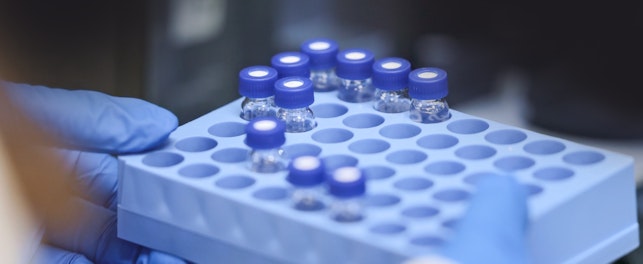The Standardization Administration of China issued its national standard GB/T 39514-2020 <Terminology, definition, identification of biobased materials>, included in China’s No. 26 announcement on the approved national standards in 2020. This new standard will become effective on June 1, 2021.
Scope
This standard applies to the following types of biobased materials, including biobased chemicals, polymers, plastics, biobased chemical fibers, biobased rubber, biodegradable paints, biobased material additives, biobased composite and products made from various biobased materials.
Terminology and definitions
This standard includes 58 terminologies and their definitions. The terminology for “biobased material” is defined as following:
Biobased materials refer to materials made from biomass or (and) by biological manufacturing processes.
Biobased materials include basic biobased chemicals and sugar engineering products which are made from biomass or (and) by biosynthetic, bioprocessing, biorefining processes, such as bio-alcohols, organic acids, alkanes, and olefins etc. It also includes biobased polymers, biobased plastics, biobased chemical fibers, biobased rubber, biodegradable paints, biobased material additives, biobased composites and products made from various biobased materials. The detailed classification can refer to Appendix A of this standard.
Identification
This standard specifies the identification of biobased materials and product materials.
- Identification for biobased materials
- Identification for product materials
This standard specifies that the product identification shall be marked on the product or the outer package. This standard has different requirements for single component products, multi-component products, products containing additives (including products containing fillers or reinforcers, products containing plasticizers and products containing flame retardants). - Making of the identification
This standard specified that the product identification can be made by molding, printing, embossing, branding or other clear and indelible marking methods.

*Example 1: PLA plastic sheet, can be expressed as ‘BBM GB/T 39514—2020 PLA plastic sheet PLA80+PBAT20’.
*Example 2: Bio-PE plastic film, can be expressed as ‘BBM GB/T 39514—2020 Bio-PE plastic film Bio-PE70+St30’.
Note:
The 58 terminologies are as follows: (1) biomass,(2) bio-carbon,(3) biomass content,(4) renewable resource,(5) Biobased (biomass based, biosourced, biogenic, from renewable resource),(6) biobased carbon content,(7) biobased content,(8) biocompatibility,(9) biobased material,(10) biobased chemicals,(11) biobased products,(12) polymer,(13) biobased polymer,(14) biopolymer,(15) natural polymer,(16) plant fiber,(17) cellulose,(18) hemicellulose,(19) lignin,(20) starch,(21) protein,(22) chitin,(23) chitosan,(24) natural rubber,(25) plastic,(26) biobased plastic,(27) bioplastic,(28) biodegradation,(29) biodegradable plastic,(30) poly(lactic acid),(31) polyhydroxyalkanoates,(32) poly(butylene succinate),(33) poly(butylene succinate-co-butylene adipate),(34) biodegradable poly(butylene adipate terephthalate),(35) poly(propylene carbonate)(carbon dioxide/propylene oxide copolymer),(36) PPC polyols,(37) polycaprolactone,(38) poly(p-dioxanone),(39) chemical fiber,(40) biobased chemical fibre,(41) biobased rubber,(42) biodegradable painting,(43) biobased plasticizer,(44) biobased flame retardants,(45) biobased adhesive,(46) biobased lubricant,(47) surfactant,(48) biobased surfactant,(49) detergent,(50) biobased detergent,(51) additives,(52) other biobased additives,(53) composite,(54) biobased composite,(55) starch based plastic materials,(56) starch based plastic products,(57) wood plastic materials,(58) bamboo plastic materials.
Details of the Technical Content
For more information, please refer to the China National Standard GB/T 39514-2020 <Terminology, defination, identification of biobased materials>. or contact SGS directly.
SGS Global Softlines has an extensive network of over 40 laboratories worldwide, with a strong team of committed professionals from multi-disciplinary backgrounds. Our internationally accredited state-of-the-art testing laboratories offer a comprehensive range of physical, chemical and functional testing services for components, materials and finished products. We help your company ensure quality, performance and compliance with international, industrial and regulatory standards worldwide. In the end, it’s only trusted because it’s tested. Discover more at www.sgs.com/softlines.
For enquiries, please contact:
Louann Spirito
Consumer and Retail - Softlines
US & Canada Softlines Business Head
t: +1 973 461 7919
© SGS Group Management SA - 2021 - All rights reserved - SGS is a registered trademark of SGS Group Management SA. This is a publication of SGS, except for 3rd parties’ contents submitted or licensed for use by SGS. SGS neither endorses nor disapproves said 3rd parties contents. This publication is intended to provide technical information and shall not be considered an exhaustive treatment of any subject treated. It is strictly educational and does not replace any legal requirements or applicable regulations. It is not intended to constitute consulting or professional advice. The information contained herein is provided “as is” and SGS does not warrant that it will be error-free or will meet any particular criteria of performance or quality. Do not quote or refer any information herein without SGS’s prior written consent.








